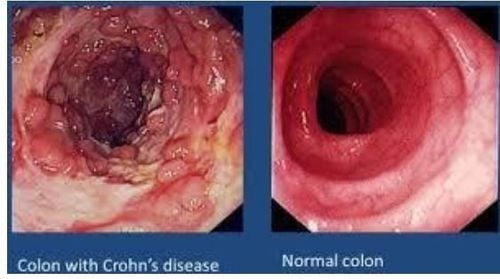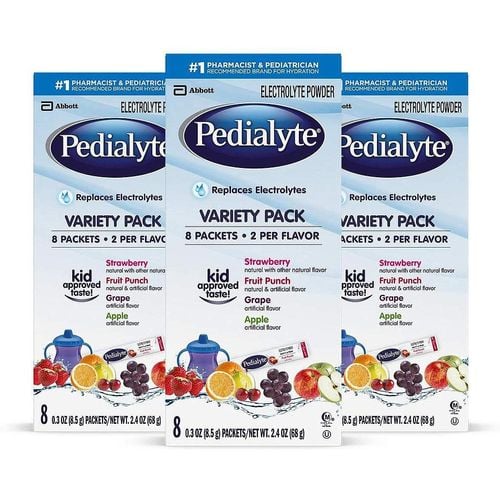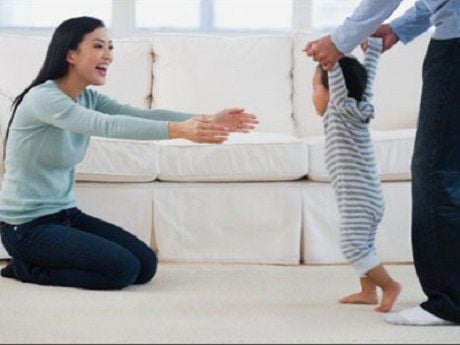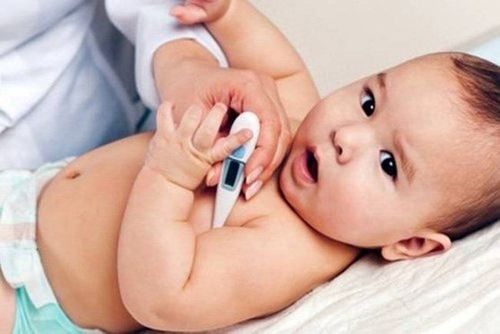This is an automatically translated article.
The article was professionally consulted by Dr. Le Thu Phuong - Pediatrician - Neonatologist, Department of Pediatrics - Neonatology, Vinmec Hai Phong International General Hospital.Children are sick Children need increased energy and nutrients to help the body fight disease. In addition to taking care of sick children, in addition to strictly following the doctor's instructions, parents also need to pay attention to nutrition so that the child can recover quickly, increase resistance and prevent malnutrition.
1. Guide to taking care of sick children to recover quickly
1.1. It's always best to let your child rest. A sick child's body is often very tired and needs rest. Therefore, on days when the child is sick, parents should keep the child at home, gently exercise in a fresh, airy environment, avoid hot sun or places with lots of dust. Furthermore, keeping children at home prevents pathogens from spreading to other children.
If your baby doesn't feel sleepy, you don't have to force him to sleep by any means. Let children freely do activities that they love, like watching cartoons, reading stories, coloring,...
1.2. Keeping children's body hydrated When taking care of sick and feverish children, parents should pay attention to replenish water for children with filtered water, juice or milk so that the child does not become dehydrated. In addition, the daily meal should also give priority to water dishes such as soup, soup, and porridge.
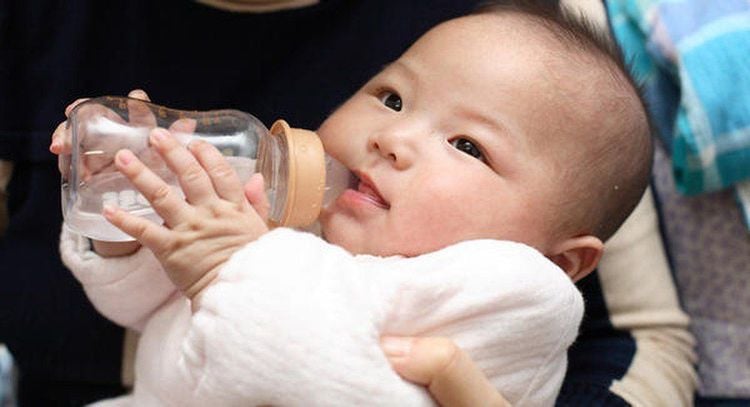
Khi chăm sóc trẻ đang ốm, sốt, phụ huynh chú ý bổ sung nước cho trẻ để trẻ không bị mất nước
1.3. Determining the exact cause of your baby's fever Fever is the body's beneficial response to fighting off pathogens. However, many dangerous diseases can also cause hyperthermia at the onset of symptoms. Therefore, if your baby has a fever, accompanied by signs of lethargy, severe fatigue, you should take him to the hospital immediately so that the doctor can diagnose and treat it properly.
If the fever is caused by a common virus, the doctor will guide care and monitoring at home. If the child has a fever for another reason, the doctor will give appropriate treatment to ensure the safety of the child's health.
1.4. Properly lowering fever When taking care of a sick child with a fever at home, don't be afraid that your baby will catch a cold, but parents let your child wear too many clothes or close the door. Instead, dress your child in comfortable, light clothes and stay in a cool, airy room. This will help the child quickly lower the fever and feel more comfortable.
If you want to give your child fever-reducing medicine, consult your doctor or pharmacist. Absolutely do not arbitrarily increase the dose of antipyretic drugs because this makes the child susceptible to overdose of paracetamol, the main active ingredient in antipyretic drugs.
1.5. Clear your baby's nose When a baby has a cold, they often have a runny nose, stuffy nose, and runny nose. Help your baby clear mucus from his nose with a rubber straw. To do this, first put a few drops of warm water or physiological saline on the sides of your baby's nose to soften the mucus and then suck them out after a few minutes.
When the child sleeps, please let the child lie on the pillow higher than usual so that the child can breathe easier. An air humidifier can help make your baby more comfortable. In addition, applying a little wind oil (type specifically for children and babies) on the skin below the baby's 2 nostrils will help the baby's nose more open.
1.6. Sore throat To take care of a child with a cough and sore throat, you need to limit or completely abstain from giving your child cold drinks and foods. Instead, encourage your child to drink warm water and eat warm foods to soothe a sore throat.
For children 7 years and older, parents can encourage children to gargle with warm salt water twice a day to clear their throats. In addition, medications such as acetaminophen or ibuprofen can also help with pain relief. However, before using it for children, it is necessary to consult a doctor or pharmacist for instructions on the correct use and dose.
1.7. Coughing is also a beneficial response of the body to help push foreign objects out of the respiratory tract. Therefore, whether cough symptoms need treatment or not depends on how much it affects the child's health status. If the cough makes a sick child tired, wakes up continuously in the middle of the night, adults need to pay special attention and treat the child as soon as possible.
For children under 1 year of age who have a lot of cough, parents should take the child to the doctor to get appropriate treatment. If the child is 1 year old or older, honey can help reduce the cough at night. Children 6 years of age and older can be given cough drops or lozenges.
1.8. Prioritize foods that are soft, liquid, easy to absorb. Nutrition for sick children should prioritize soft foods such as oats, mashed potatoes, yogurt, soup... They help the child's body easily Easily absorb nutrients to quickly restore health. Note, parents should let their children eat according to their needs and preferences, should not force them to eat when they are tired or not feeling hungry.

Chế độ dinh dưỡng cho trẻ đang ốm cần ưu tiên các loại đồ ăn mềm giúp cơ thể dễ dàng hấp thụ dưỡng chất
1.9. Control diarrhea Children with the flu often have diarrhea or vomiting, which can lead to severe dehydration. Therefore, parents need to actively supplement water and electrolyte solutions for their children to prevent dehydration and electrolyte disturbances.
While taking care of a sick child with diarrhea, do not give your child carbonated or soft drinks because they can make diarrhea worse. Although children are vomiting, parents should still encourage children to use liquid foods with small portions, so that the digestive system can easily absorb, the body is provided with energy to fight the disease.
2. Nutrition for sick children
2.1. For children under 6 months of age who are breastfed For children under 6 months of age, the main source of nutrition should come from breast milk. When the baby is sick, the mother still needs to continue to breastfeed the baby normally. If possible, try to increase the number of feeds and lengthen the feeding time because the sucking power of sick babies is often less. When the baby has a blocked nose or is too tired to suckle, the mother needs to express the milk and feed the baby with a spoon.
2.2. For children from 6 months and older In addition to breast milk, parents need to give children more meals and provide them little by little, mainly with nutritious foods such as meat, eggs, milk, fish... to increase their growth. More energy for every meal. Food for children needs to be soft, cooked well, thinner than usual so that sick children can easily digest. Children should be fed immediately after cooking to ensure hygiene and reduce the risk of superinfection. Pay attention to increase vitamins and minerals for children with ripe fruits, fruit juices such as bananas, oranges, lemons, mangoes, papayas, ... or use additional micronutrients under the guidance of a doctor. When children are sick, their bodies are deficient and nutritionally imbalanced, families need to spend more time taking care of them, coaxing them, and helping them eat more to meet their nutritional needs.
In addition, in order to prevent diseases that babies often get, parents should pay attention to nutrition to improve children's resistance. At the same time, add supporting foods containing lysine, essential micro-minerals and vitamins such as zinc, chromium, selenium, B vitamins,... snacks and less digestive problems.
Parents can learn more:
Why do you need to supplement Lysine for your baby?
The role of zinc - Guidelines for reasonable zinc supplementation
Please visit the website Vinmec.com regularly and update useful information to take care of your baby and family.





